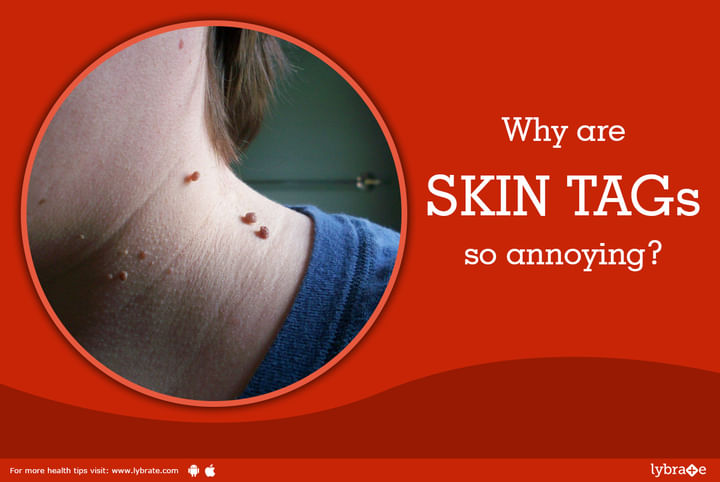Why are SKIN TAGs so annoying?
Skin tags: causes and treatments
Skin tags, also known as acrochordons, are small brown or darker-than-skin tone growths on the surface of the skin. Tags are very common and harmless growths and tend to occur on the neck, under the breasts, armpits, eyelids and folds of the groin. They generally take place after midlife. About 25% of people report having skin tags after they cross the age of 50.
What causes skin tags to occur?
Skin tags are very common among diabetics and obese individuals. Pregnant women also develop skin tags, as a consequence of changes in the body's hormonal levels. Skin tags tend to occur when your skin rubs against clothing or skin. They are normally caused by blood vessels and collagen that gets trapped inside the thicker portions of the skin. For this reason, they are typically found in folds and creases of the skin. Sometimes, they reduce on their own if blood supply to the tissue has been disrupted due to them getting twisted.
What procedures are involved in their treatment?
Skin tags are generally removed for purely cosmetic reasons but when they do become troublesome, as in, they rub against jewelry, skin or clothing, doctors recommend their removal as the area can end up becoming irritated.
The following procedures are performed to remove these annoying growths on skin:
1. Excision - in this procedure the skin tag gets removed using a scalpel.
2. Ligation - the procedure involves the cutting off of blood supply to the skin tag.
3. Cauterization - the procedure involves the burning off the skin tag using electrolysis (process that involves decomposition of a matter by electric current)
4. Cryosurgery - in this procedure, the skin tag is frozen before removing it. An instrument containing liquid nitrogen is used to do the removal.
'Consult'.
Related Tip: How does salt help in clearing skin?



+1.svg)
